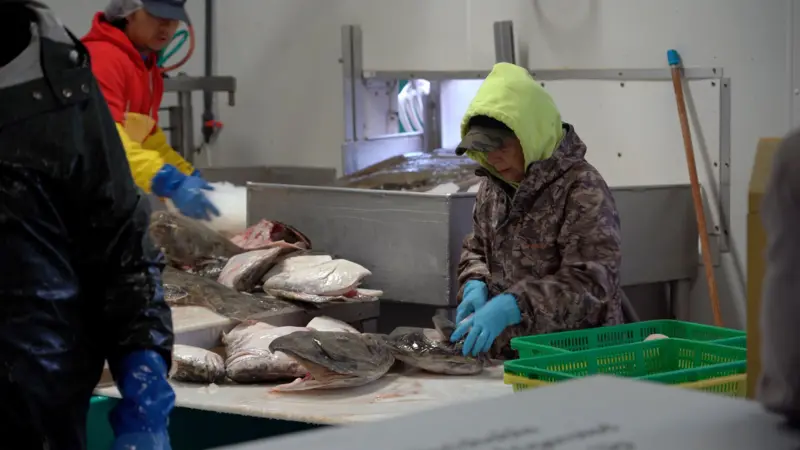Alaska, known for its pristine landscapes and abundant seafood, owes much of its economic success to an often-overlooked group: Mexican migrants. These workers, many of whom leave their families behind for months at a time, are essential to the state’s fishing industry, earning up to $27,000 for four months of physically demanding labor.
According to a recent report by the BBC, the contributions of these migrants are indispensable. “Without the Mexicans, my business would be worth nothing,” confessed a seafood business owner in Alaska, highlighting the pivotal role of these workers. The statement underscores not only the economic reliance on migrant labor but also the resilience and determination that characterize this workforce.
The Economic Reality: Why Alaska Needs Mexican Workers

The fishing industry in Alaska generates billions annually, supplying seafood across the United States and internationally. However, this lucrative sector faces a critical challenge: finding a labor force willing to endure harsh conditions. Many Alaskans are unwilling to take on these physically demanding jobs, leaving a gap filled by Mexican migrants.
Mexican workers often travel thousands of miles to work in Alaska’s remote fishing towns. The journey is arduous, but the rewards are significant. Earning up to $27,000 in just four months can be life-changing for many, allowing them to support their families and invest in their futures. This earning potential also attracts workers year after year, creating a dependable labor pool for Alaska’s seafood processors.


Life for these migrants is far from glamorous. Days are long, with 16-hour shifts being common during the peak fishing season. Workers endure freezing temperatures and demanding physical tasks, including processing fish, operating machinery, and handling heavy loads.
Despite these challenges, many find pride in their work. One worker interviewed by the BBC shared, “It’s tough, but it’s worth it. I can send my kids to school, improve my house, and give my family a better life.” Stories like these demonstrate the profound impact of this labor on individuals and their families.
Cultural and Economic Contributions
Beyond their economic contributions, Mexican migrants bring cultural richness to the small fishing towns of Alaska. Their presence fosters diversity and strengthens community ties. Local businesses benefit from the influx of workers, creating a ripple effect that supports the broader economy.
Moreover, their hard work sustains a vital U.S. industry, ensuring that American consumers have access to fresh seafood and that Alaska remains competitive in global markets.
Challenges and Risks Migrants Face
While the rewards are substantial, the risks are significant. Migrants face isolation, language barriers, and physically taxing environments. Additionally, their work is not without dangers, as the fishing industry is among the most hazardous in the United States.
Despite these challenges, the resilience of Mexican workers continues to shine. Their determination to succeed and provide for their families underscores the human spirit’s strength in the face of adversity.
The story of Mexican migrants in Alaska reflects a broader narrative about the importance of migrant labor in the United States. These workers are not just essential to the fishing industry; they play a critical role in agriculture, construction, and other sectors that underpin the U.S. economy.
The BBC report sheds light on the invaluable contributions of these workers, emphasizing the need for policies that recognize and protect their rights. As debates about immigration continue, stories like these highlight the profound impact of migrant labor on the nation’s prosperity.
Mexican migrants in Alaska are a testament to the strength of human perseverance and the importance of cross-border collaboration. Their work not only sustains an industry but also strengthens the ties between the United States and Mexico, showcasing the benefits of a cooperative and inclusive approach to labor and immigration.
This content was originally published by the BBC.
